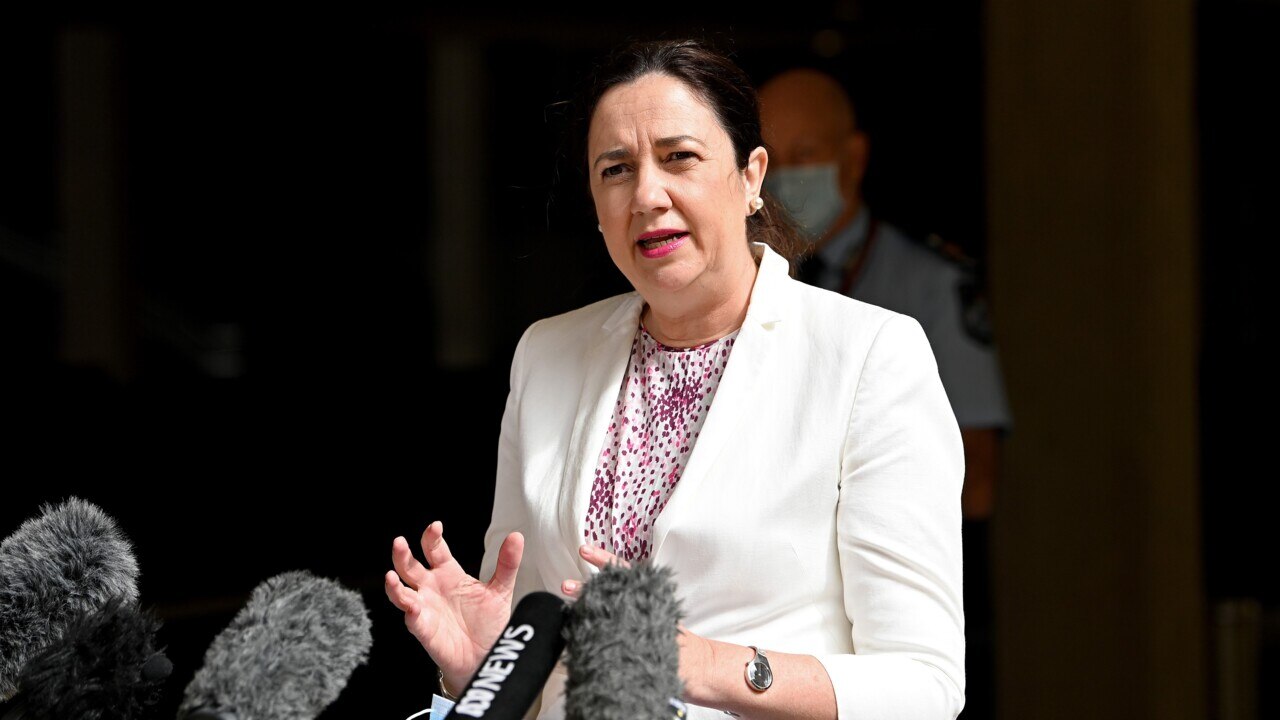Some students will return to face-to-face learning but many will have to do home learning for first few weeks
With Omicron set to peak in late January, only some year levels will start school with face-to-face learning. Find out which children will start the year at home.

South Australian students will begin the school year with a hybrid model – some face-to-face, some learning from home, Premier Steven Marshall announced on Thursday afternoon.
While full details will be announced on Friday, the Premier said schools will open on January 31 for children of essential workers and vulnerable children.
From February 2, all classes resume – but only face-to-face for reception, year 1, year 7, year 8 students and year 12 students.
Other students will resume their classes online on February 2.
It is planned for all students to return to face-to-face learning on February 14.
Mr Marshall said the decision was made to support students making the transition to primary and high school, and to support students in their final year.
This year is the first year that high school begins in year 7 for SA kids – so there are two years beginning secondary education this year.
Mr Marshall said the hybrid model would massively reduce the number of new infections during February.
Childcare has continued; state-run kindergartens will also return on February 2.
Education Department chief executive Rick Persse and Education Minister John Gardner have briefed senior officials on the state’s Covid ready committee (CRC) about the plans.

It is understood official modelling predicts the Omicron peak between January 21 and 25. Preliminary data is forecasting around a doubling of cases and hospitalisations.
Estimates are still being finalised and have yet to be presented to the CRC.
Sources said modelling showed that having most year levels at home for even a few weeks would have a “dramatic” effect on slowing the spread of Covid.
The Independent Education Union SA said its preference was for a delayed start to the school year.
This would have three advantages, secretary Glen Seidel said.
“It would allow for possibly avoiding the forthcoming peak,” he said.
“It would give time for more students to be vaccinated.
“And it would allow for a whole lot of protocols to be established.”
Mr Seidel said it would be important for students starting in reception or their first year of a new high school to do so face-to-face as they would not have established friendship groups.
Other levels could go online “but what doesn’t work is a mixed mode where some students are in the classroom and some are online”.
The union covers non-government schools and Mr Seidel said there were no clear protocols on how schools would respond to positive cases.
Among the unanswered questions were whether just a class or a whole school would close, what would determine whether and when students and teachers could return, whether RATs would be part of the return procedure and, if so, how would they be distributed and who would pay.
“There’s also the issue of whether it would be reasonable to extend the vaccination mandate to students,” Mr Seidel said.
“If the adults in the workplace need to be vaccinated, why would you not mandate vaccinations for students?”
There were industrial issues for teachers with many enterprise bargaining agreements including a clause for paid leave if an infectious disease is caught at the school.
“But you’d have to demonstrate you actually caught the disease at work and it doesn’t cover being sent into isolation,” Mr Seidel said.
Australian Education Union Andrew Gohl said many of the members of his union, which covers public sector employees, worked at early childhood centres.
Children aged under five were not eligible for vaccinations, making kindies and childcare centres highly vulnerable to Covid-19 outbreaks.
SA has so far been allocated 250,000 paediatric doses of vaccines for the state’s 148,000 children aged 5-11.
Authorities expect parents to have almost 120,000 of those children, or about 80 per cent, to be vaccinated.
Meantime, leading medical experts say a return to the classroom would not have a significant impact on Australia’s Omicron pandemic curve,
In an open letter to national cabinet, medical professionals including former Australian deputy chief medical officer Nick Coatsworth and Professor Catherine Bennett have urged leaders not to delay the school year.
“In the third year of the Covid-19 pandemic we now have evidence that it is safe to allow schools to be open for face-to-face learning,” the letter said. “We call upon all federal, state and territory governments to recommit to the return to in-person schooling without delay for Term 1 2022.”




